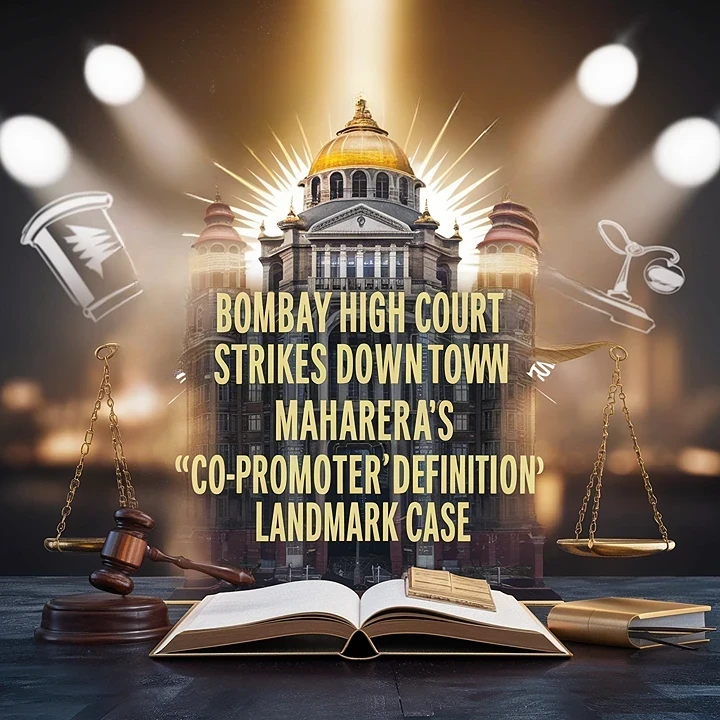The case of Ismail Ibrahim Patel & Ors. vs. State of Maharashtra & Ors. revolved around a legal challenge to an office order issued by the Maharashtra Real Estate Regulatory Authority (MahaRERA) on 11 May 2017. The disputed order introduced the term “Co-Promoter” into real estate regulations, which the petitioners contested as being beyond MahaRERA’s statutory powers under the Real Estate (Regulation and Development) Act, 2016 (RERA).
The petitioners challenged the validity of the MahaRERA office order, which attempted to define “Co-Promoter.” This definition was introduced under Regulation 38 of the Maharashtra Real Estate Regulatory Authority (General) Regulations, 2017.
Definition of Co-Promoter as per MahaRERA
MahaRERA defined “Co-Promoter” as:
- Any person(s) or organization(s) that, through an agreement with the main promoter of a real estate project, was allotted a share of revenue from sales or entitled to a portion of the total area developed in the project.
- Such co-promoters were required to bear responsibilities as per the agreement with the promoter.
- Financial accountability was placed at par with the main promoter for withdrawals from the designated escrow bank account.
Key Legal Issues Raised by the Petitioners
- Lack of Statutory Basis:
- The petitioners argued that RERA does not define “Co-Promoter.”
- The Act only defines “Promoter” under Section 2(zk).
- MahaRERA lacked legislative power to introduce a new category of promoters.
- Exceeding MahaRERA’s Powers:
- Regulation 38 of MahaRERA allows the Authority to issue orders and directions for implementing RERA but does not empower it to create new legal definitions.
- The petitioners contended that MahaRERA was expanding the definition of “Promoter” without statutory backing.
- Legal and Practical Consequences:
- The introduction of “Co-Promoter” could create legal ambiguities.
- Investors, joint venture partners, and landowners could face liabilities despite not being directly involved in project execution.
Arguments of MahaRERA & The State
MahaRERA defended its actions, asserting that:
- The definition of “Co-Promoter” was not an amendment but a clarification of the existing term “Promoter.”
- The objective was to ensure transparency and financial accountability in real estate transactions.
- The order aimed to simplify compliance procedures and enhance public awareness regarding stakeholder responsibilities.
However, after reviewing the legal implications, MahaRERA acknowledged the complexities arising from its order and opted to withdraw and replace it.
Final Decision by the Bombay High Court
- MahaRERA withdrew the office order dated 11 May 2017, addressing the petitioners’ concerns.
- The petitioners, satisfied with the withdrawal, were allowed to withdraw the case.
- The Court refrained from ruling on the legality of the “Co-Promoter” definition since the order had already been rescinded.
Key Implications of the Judgment
- No new category of “Co-Promoter” exists under RERA.
- MahaRERA lacks the authority to expand definitions beyond what is explicitly stated in the Act.
- Stakeholders in real estate projects remain accountable only as per their legal agreements and statutory provisions of RERA.
Conclusion
This case reinforced the principle that regulatory authorities cannot expand statutory definitions without legislative backing. By withdrawing the “Co-Promoter” definition, MahaRERA prevented potential confusion and upheld legal clarity in real estate transactions. The ruling serves as a crucial precedent for developers, investors, and regulatory bodies, ensuring that responsibilities under RERA remain well-defined and legally sound.






